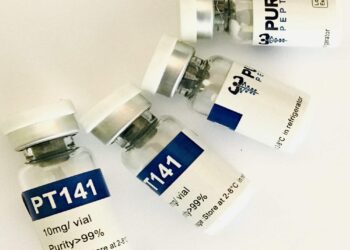Erectile Dysfunction (ED) is the inability to have and maintain an erection strong enough for intercourse. Having erectile dysfunction from time to time is not necessarily a sign of medical problems. However, if erectile dysfunction is a persistent problem, it will surely affect your sexual relationship, cause emotional stress and ultimately, lead to other relationship issues. The good news is that with today’s resources, erectile dysfunction sufferers can effectively treat their condition, learn to control it and ultimately live a satisfying sex life.
Stress and anxiety are two of the major contributors to erectile dysfunction. When you are suffering from this condition, it is very likely that you will also be experiencing high levels of anxiety. This may stem from work and family responsibilities. If this is indeed the case for you, then it is important that you seek help from your doctor. It is very important that you tell your doctor everything that is going on in your life so that your health can be properly evaluated.
Aside from stress and anxiety, another major contributor to ED is poor blood circulation in the penis. Poor blood circulation to the penis causes the nerves to become less sensitive to stimulation. In turn, this leads to the lack of strong erections. Another possible cause of erectile dysfunction may also be from diabetes. This condition causes low blood flow to the penis, which may eventually lead to weak and limp sperm cells and weak erections.
One way to effectively manage erectile dysfunction when it runs in your family is through a healthy weight regimen. Studies show that a person with a healthy weight has stronger nerves and better blood circulation. It is essential that you have a proper diet that contains enough carbohydrates, protein, and a good amount of fats to boost your weight. A healthy weight will ensure that you have plenty of energy to perform sexually and to avoid fatigue that often comes with failing to lose weight.
Stress is another common factor that can lead to erectile dysfunction. When you are stressed about things like bills and whether or not your job will go as planned, you are likely to experience low sex drive. You may also become more irritable at all times if you are constantly worried about money or other relationship problems. If you find yourself constantly worried and not able to let go of your stress, then it is best to seek professional help to deal with your stress and to address any relationship problems you may have.
Men who are suffering from erectile dysfunction (ed) should not allow the situation to continue. The sooner you seek medical help to deal with your problem, the sooner you will have permanent results and be on your way to enjoying better sex and a more satisfying long-term relationship. Remember that it takes time and a little bit of effort to enjoy better sex and more fulfilling relationships.
Probably not. But as age, there are plenty of ways to keep at it and still enjoy it. That is just as true of sexual intercourse as it is of competitive sports.
As is true of most other sports, erectile dysfunction (ED) is commonly caused by a combination of physiological conditions. These conditions can be divided into two broad categories: low testosterone levels and dysfunctional neurotransmitters. Low testosterone levels are extremely common in men as they approach middle age; while dysfunction of neurotransmitters tends to become more prominent as we age. In both cases, the symptoms of erectile dysfunction present themselves during periods of decreased sexual interest or activity.
While the causes of low testosterone and/or poor blood flow to the penis are somewhat understood, the precise cause of erectile dysfunction is less understood. Some doctors think it may be a chronic disease like diabetes. And while diabetes certainly raises a patient’s risks for heart disease, stroke, and high blood sugar, erectile dysfunction may also be caused by another condition-not diabetes but rather depression. Depression interferes with blood flow to the penis, causing erectile dysfunction. Depression is known to exacerbate and even trigger the symptoms of low testosterone levels and dysfunctional neurotransmitters.
Doctors for erectile dysfunction like Premier Men’s Medical Center usually treat the underlying medical illness first, then try to correct the side effects of the medication. Treatments for diabetes and erectile dysfunction are usually successful if they correct problems such as elevated blood sugar levels-probably as a result of inadequate insulin production. Antidepressant drugs also tend to be effective, but only if the patient is depressed.
But the truth is that most men with erectile dysfunction do not have diabetes, nor does the majority of erectile dysfunction patients who are depressed have diabetes. Scientists have conducted several studies on the effects of depression on sexual health-but no studies have compared a patient with erectile dysfunction who is depressed with one who is not depressed. This is because erectile dysfunction, like diabetes, affects the autonomic nervous system-the part of the brain that controls your body’s responses to physiological stimuli. Researchers know that depressed people lose control over certain portions of their body, especially over their penis. And it has been suspected for years that estrogen levels decrease in diabetics and obese men.
Men with erectile dysfunction and those who report problems with cardiovascular and/or nervous system functioning are especially vulnerable to depression. Other potential relationship problems include feelings of guilt, social isolation, increased stress level, anger, decreased self-confidence, and decreased social interaction. The bottom line is that ED include psychological factors and can, if left untreated, lead to significant psychological and emotional issues for both men and women. While ED is not a disease in itself, men who suffer from it often experience other physical conditions as well.







